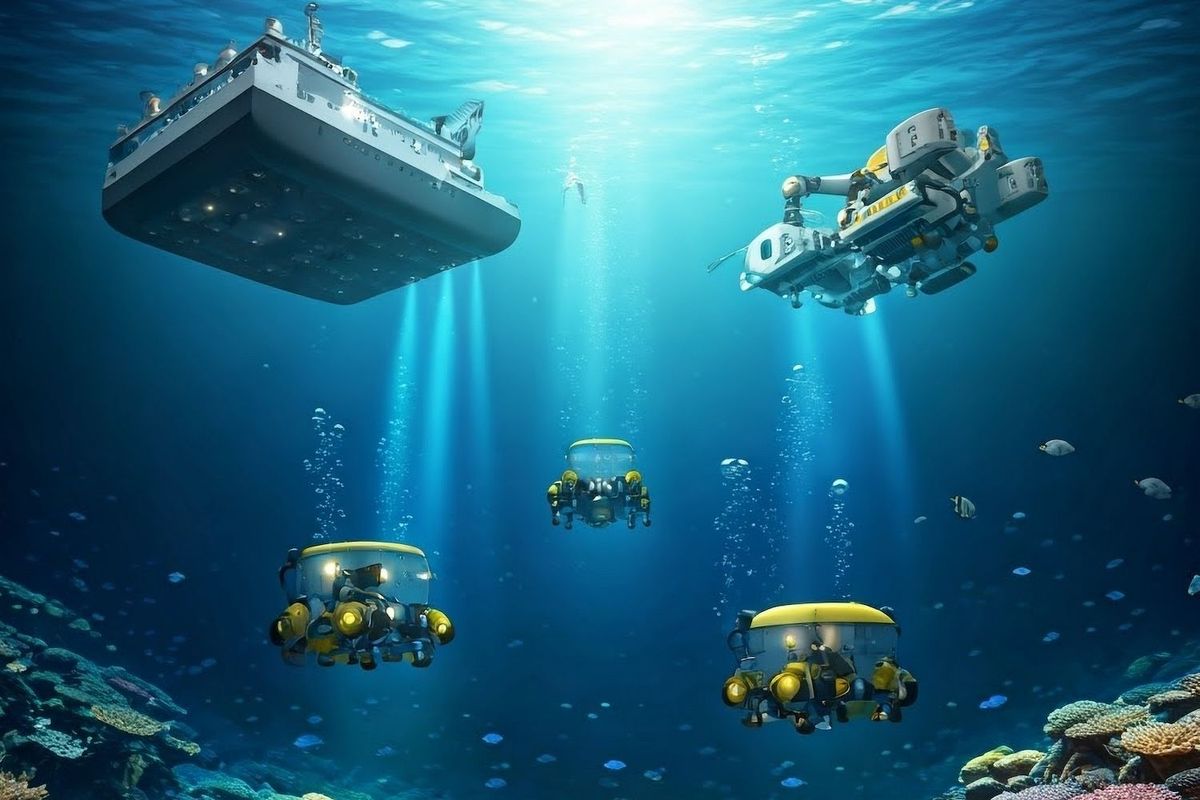Norway Suspends Deep-Sea Mining Plans as Environmental Concerns Rise
The policy shift occurred after the Socialist Left Party made its support for the government’s budget contingent on halting the mining initiative.

Norway suspended its plans to open vast areas of its seabed for deep-sea mining on Sunday (December 1), reacting to pressure from environmental groups and political negotiations.
The original proposal from the Norwegian government would have allowed companies to apply for licenses to mine around 280,000 square kilometers of seabed for minerals critical to modern technologies.
The plan, which targeted areas containing resources like cobalt, nickel and rare earth elements, faced strong opposition from conservation groups, researchers and multiple governments.
The policy shift occurred after the Socialist Left Party made its support for the government’s budget contingent on halting the mining initiative. Leader Kristi Bergstø said during budget talks that preventing the opening of the seabed for mineral extraction was a key condition, emphasizing the need to prioritize environmental considerations.
Prime Minister Jonas Gahr Støre referred to the decision as a "postponement," indicating that preparatory work on regulations and environmental studies will continue. However, marine conservation organizations have described the move as a significant victory, with some calling it a decisive setback for deep-sea mining in Norway.
Criticism of Norway's deep-sea mining plans
Norway’s initial decision to pursue deep-sea mining attracted criticism both domestically and internationally.
Environmental organizations, including Greenpeace, warned of the potential destruction of fragile ecosystems and the disruption of marine biodiversity. Researchers noted that mining activities could irreversibly damage seabed habitats and release toxic sediments into the water column, with cascading effects on the marine food chain.
Norway’s proposal also faced resistance from international stakeholders. More than 30 countries, including France, Germany and Canada, have expressed opposition to seabed mining without comprehensive safeguards.
The Nordic Council, a regional intergovernmental body, earlier passed a resolution supporting a moratorium on the practice. While non-binding, the resolution highlighted growing regional discontent with seabed mineral extraction.
The suspension has halted initial government consultations for the first round of licences for the extraction of seabed minerals. Lithium, scandium and cobalt were included, spanning across 386 blocks.
The combined area of all the blocks corresponds to an area twice the size of Denmark.
Loke Marine Minerals, Green Minerals (FWB:5lP) and Adepth Minerals are three Norwegian companies that had expressed plans to apply for mining licenses.
Global push for deep-sea critical minerals
Norway’s decision comes as countries around the world explore ways to secure access to critical minerals.
Deep-sea mining is often presented as an alternative to land-based mining, with proponents arguing that it could minimize the environmental damage associated with terrestrial operations.
However, critics argue that the risks to marine ecosystems far outweigh potential benefits.
India, for example, is advancing plans to explore the Pacific Ocean for seabed minerals.
The Clarion-Clipperton zone, a region rich in polymetallic nodules, has attracted interest from India and other countries that are seeking materials essential for renewable energy technologies.
Earlier this year, India’s Ministry of Earth Sciences outlined plans to apply for exploration licenses through the International Seabed Authority (ISA), which oversees mining activities in international waters.
India already holds two ISA exploration permits, but has yet to begin operations due to pending regulations.
The country’s broader strategy includes securing exploration rights in other areas, such as the Indian Ocean’s Carlsberg Ridge and Afanasy-Nikitin Seamount. These sites contain valuable deposits of polymetallic sulfides and ferromanganese crusts, which hold metals key for technologies like batteries, electric vehicles and solar panels.
Scientists warn against deep-sea mining
Marine scientists have warned that ecosystems in the deep ocean are poorly understood and highly sensitive. Species adapted to cold, nutrient-rich waters could face extinction if mining disrupts their habitats.
In fact, Norway’s own Institute of Marine Research has recommended a pause of five to 10 years on seabed mining to allow for more comprehensive studies. As mentioned, while the Norwegian government is framing the current suspension as temporary, activists view the delay as a critical opportunity to build opposition against seabed mining.
They emphasize the importance of alternative strategies, such as improving recycling and circular economy practices, to reduce reliance on newly mined resources.
Don't forget to follow us @INN_Resource for real-time news updates!
Securities Disclosure: I, Giann Liguid, hold no direct investment interest in any company mentioned in this article.
